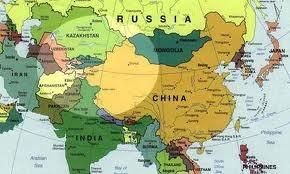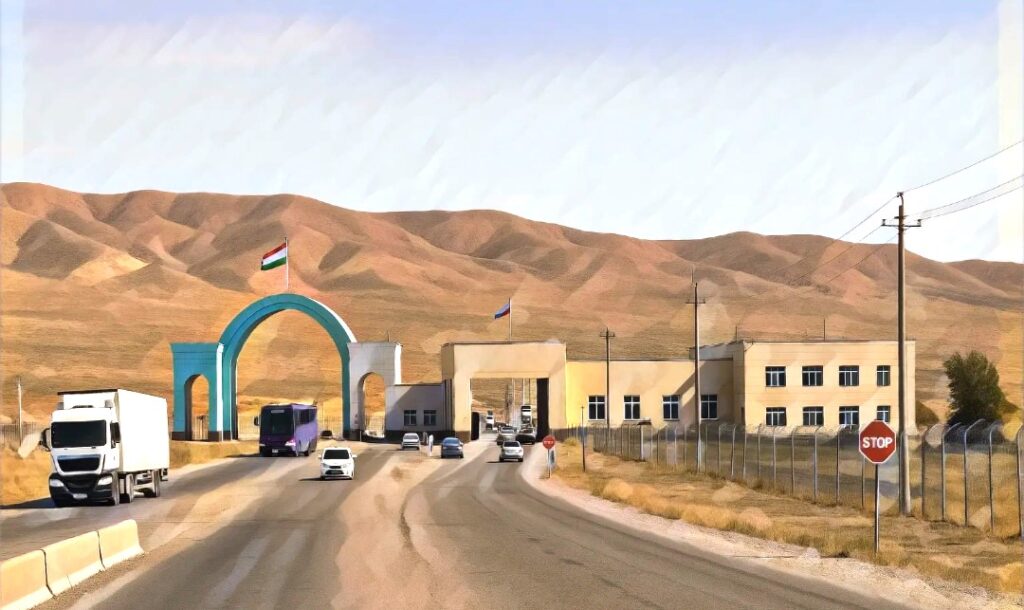BISHKEK (TCA) — The Times of Central Asia presents to its readers Stratfor’s Global Intelligence, a weekly review of the most important events that happened in the world — from Europe to Middle East to Russia to Central Asia to Afghanistan to China and the Americas.
The Week That Was
The Brussels Attacks
The revelations of massive intelligence failures leading to Tuesday’s attacks in Brussels are highly frustrating, although not altogether surprising for a state as tiny and under-resourced as Belgium located at the center of a group of states trying to deal with highly autonomous terrorist cells. Security coordination at the EU level is hampered by different member state priorities, resources and levels of expertise when it comes to counterterrorism.
Even as the imperative to tighten coordination to prevent deadly terrorist attacks is more than obvious, intelligence sharing among nations, much less among security agencies within states, tends to be a highly contentious affair. This is not a problem unique to Europe, but it is complicated by the fact that the European Union is still in the midst of figuring out how to address the principle of free movement across borders amidst the migrant crisis and a persistent terrorist threat. Efforts will be made to better resource security agencies like Europol and Frontex and develop more coordination among agencies across nation states. Still, we are dealing with matters of sovereignty, and when the politics in Europe are learning in a more nationalist and Euroskeptic direction, integration efforts will undoubtedly suffer as demands grow for reinstatement of national borders and tougher laws on immigration.
A closer examination of the attacks themselves and subsequent arrests reveals that the attack was likely scaled down from its original plan and could have even been a rushed job out of concern that the arrest of Salah Abdeslam would threaten the operational security of the plot. There were a number of logistical failures that revealed key lapses in the planning and preparation for the attack. Thursday’s arrest of an operative in person who was reportedly in the advanced stages of planning an attack also points to members of linked cells following a “use it or lose it” mentality in rushing additional attacks for fear of getting rounded up first. This heightens the threat of attacks by grassroots cells in Europe, but also could mean that the attack plans will be reduced in scope or hopefully thwarted altogether. Moreover, if it is confirmed that Najim Laachraoui, one of the Brussels attackers who blew himself up, was also the bombmaker, it could take time for Islamic State to replace him and information on Laachraoui could lead to information on other cells relying on his bomb-making skills. It takes a great deal of skill to work reliably with highly volatile materials like triacetone triperoxide (TATP), which made Laachraoui a valuable asset to the Islamic State.
A Suspiciously Amicable Russia Trip
The other main event came toward the end of week when U.S. Secretary of State John Kerry traveled to Moscow for intensive meetings with Russian Foreign Minister Sergei Lavrov and Russian President Vladimir Putin. The meetings were way too cuddly for our comfort. This suggests that something is definitely up between Washington and Moscow, especially given that Kerry first spent four hours with Lavrov, then met with Putin and went back to Lavrov, presumably to review details and steps forward on Syria and Ukraine. Remember that Russia threw out the first big concession by announcing the drawdown of its forces from Syria. Kerry’s trip to Moscow was about the U.S. reciprocating and both sides were very open about the fact that they are linking the issues of Syria and Ukraine.
Notably, German Foreign Minister Frank-Walter Steinmeier was also in Moscow and met with Lavrov and Kerry, indicating that the United States and Germany are jointly planning to apply more serious pressure on Kiev to make concessions, such as holding and recognizing elections in eastern Ukraine. The problem is that the Ukrainian government is incredibly fragile and is still far more likely to collapse than it is likely to bend to Moscow. At the end of the day, a collapsed Ukrainian government may not be such a bad thing from Moscow’s point of view but we are still on the lookout for other areas where the United States could deliver potential concessions to Russia in return for cooperation on a Syrian deal. We will be looking for any shift in how the United States and Germany are defining implementation of the Minsk deal on Ukraine as well as any restraints placed on NATO’s buildup plans for Europe.
An Italian Merger
This week saw the announcement of a banking merger for which Italy has been waiting hopefully for over a year. The Italian banking system is sweating under the weight of 200 billion euros of non-performing loans, a problem that is complicated by the fragmented nature of the sector, which has a high number of small mutual banks. Legislation introduced last January was designed to make it easier for these banks to merge and thus consolidate the sector, and the last year has been one of impatient anticipation while no such mergers took place. But this week, Banco Popolare di Milano and Banco Popolare announced a merger, with their combined weight creating Italy’s third largest bank. This will inspire hope that the ball has now started rolling and there might be a flurry of merger activity in the coming months. The key bank to watch is Monte dei Paschi di Siena, Italy’s third largest bank currently, which holds the largest chunk of non-performing loans and has been searching for a suitor for three years. The government is trying to persuade Banca Intesa and a publicly-backed bank to launch a takeover bid but they have thus far been unwilling. Bear in mind though, that even if a mass consolidation of the sector does take place as hoped, it may make Italy’s non-performing loan problem easier to manage but the sheer size of the overhang will remain undiminished.
A Defiant Letter in China
In the lead-up to China’s 2017 Party Congress and amid the economic slowdown, we have been expecting to see growing signs of resistance to Xi Jinping. This week, more than 16 people were arrested in connection with the publication of an open letter early in the month boldly calling for Xi’s resignation and signed by “Loyal Communist Party Members.” The letter blamed Xi’s “abandonment of party tradition, including most significantly… the collective leadership of the [Politburo] Standing Committee” for leading to mismanagement of the economy as well as the invigoration of external threats to China.
The letter, coming out on a state-linked media outlet amid a strong crackdown on the entire news and propaganda system, is a marked escalation of the power struggle brewing under the surface in China. Threats to Xi’s hold on power were heretofore amorphous, and signs of resistance were small and fleeting. The letter, though quickly taken down, appears to be a declaration from elements within the party itself in favor of the status quo before Xi, that years of anticorruption campaigns have failed to uproot them as political threats. The arrests of 16 this week (six employees of the news site, 10 from a related tech company) and one journalist tied with the letter last week, are almost certainly only the beginning as Xi and his men try to dig beneath the surface to find and destroy the networks behind this challenge.
North Korea Makes Headway
North Korea meanwhile continued to make advancements in the development of a viable nuclear deterrent by running a ground test of a solid-fueled rocket booster on March 24. North Korean rockets heretofore have been liquid fueled, requiring precious time to fuel up prior to launch that would give U.S. and South Korean forces ample opportunity to destroy a rocket prior to launch. This follows a ground simulation carried out by North Korea last week that tested the ability of a intercontinental ballistic missile nose cone to survive the stresses of reentry, and the publication of photos earlier in the month that were purportedly of a miniaturized nuclear warhead able to be mounted on a ballistic missile.
This is clear messaging from North Korea that it is making steps towards a viable deterrent: a weapon able to mount a nuclear warhead, strike the U.S. after reentry, and launch on short notice. Nonetheless, ground simulations are no substitute for an actual flight test. Expectations of this test will accelerate even closer cooperation between the United States, Japan,and South Korea, a problem for the Chinese that President Xi Jinping will almost certainly discuss with President Barack Obama on his imminent visit to the United States.
Iran’s New Year
Finally, March 20 marked Nowruz, the beginning of the Persian New Year, and President Hassan Rouhani and Supreme Leader Ali Khamenei used the opportunity in their Nowruz messages to highlight the Iranian economy and the challenges facing it in the coming year. Much of Rouhani’s first term in office has been centered on getting in the nuclear deal into place. His promised economic and social reforms have taken a backseat during this process and now that the deal is in place, those economic reforms — partially liberalizing investment and ownership of key industries and a more constructive economic relationship internationally — are at the top of his agenda.
He has dubbed these policies the “JCPOA-2” and noting that it started with Feb. 26 parliamentary elections that saw gains by the more moderate Iranian political factions at expense of conservative hardliners. The supreme leader also focused his message on the economy dubbing the next year as “The Economy of Resistance: Action and Implementation,” echoing the resistance economy policies that he has pushed for since 2014, that prioritize domestic ownership and production in key industries. Khamenei also said that Rouhani and the administration had only performed “preliminary” tasks in instituting his resistance economy. The two’s Nowruz statements are an important reminder that the two largely disagree on the value of and the extent to which Iran should economic ties with the West. Both Rouhani and Khamenei have pushed the issue to the top of the agenda for the next year — Rouhani’s final full year in office before elections in 2017 — making it an important battleground to follow as the Supreme Leader seeks to balance Rouhani’s recent successes with competing Iranian political factions.
Full Articles
Space: The Increasingly Crowded Frontier
Space is getting crowded. An increasing number of space science missions aimed at improving basic understanding of planetary science have been launched or proposed in the past few years. Such missions have been part of spaceflight since its advent but long were launched only by traditional space powers: the United States, Europe and Russia. Today, a new set of players has entered the arena, launching missions to the moon, the asteroids and other planetary bodies. China, Japan and India in particular all have performed, attempted or announced missions to Mars in the past three years.
The Rise and (Eventual) Fall of a Battery Technology
Fire, the wheel, the compass, the internal combustion engine, the Internet: All are technologies that changed the world. Batteries could be next. Geographic constraints define geopolitics, but new technologies have the potential to overcome such constraints and, in doing so, to drastically change global dynamics. For this reason, we monitor technological advancements and developments, including in energy storage — batteries. Improvements to battery technology could shape our lives in remarkable ways, enhancing renewable energy integration into the power grid, making mobile robotics practical and reducing the price of electric vehicles in the not-so-distant future. If technologies advance to the point where current fuel sources (hydrocarbons) become less influential, the results will be quite literally Earth-changing.
What Hindu Nationalism Means for India’s Future
In recent months, a surging wave of Hindu nationalism has challenged India’s bedrock philosophy of secular pluralism, touching off a raging national debate about the fundamental nature of the country’s political identity. This so-called intolerance debate has pitted traditional pluralism against a more strident, conservative religious-based conception of Indian nationhood that seeks to change the underlying principles the nation was founded upon.
In China, a President’s Attempt to Disarm Challengers
The People’s Liberation Army is in the middle of its most sweeping reforms to date, so it is no surprise that the paramilitary police force would undergo changes of its own. Yet the People’s Armed Police reforms are less about making the force function better and more about Xi preparing to crack down on political adversaries ahead of the 19th Party Congress in 2017. The proposed reforms would concentrate China’s remaining armed forces in the hands of Xi, disarming anyone from the Party bureaucracy or local governments who could challenge his rule. If the reforms occur, the question will be whether the armed police, under more singular management, will still be as responsive to domestic unrest.
North Korean Nuclear Ambitions Ride on Missile Development
Amid the latest series of North Korean missile tests, South Korea’s Ministry of Unification has asserted that Pyongyang is ready to carry out its fifth nuclear weapons test detonation and may simply be waiting for a politically advantageous time to do so. But If the North wants to further bolster the credibility of its claims to possess a long-range nuclear deterrent, it will need to do at least two more things: conduct active re-entry tests to verify the viability of a nose cone and conduct a test of a guidance system for re-entry. Pyongyang is not seeking to match current U.S., Russian or Chinese technologies. It is sufficient to demonstrate technologies from the 1950s and 1960s — technologies that have been amply documented, studied and tested.
Alliances Crumble as Yemen Moves Toward Peace
Several recent developments suggest that the conflict between Yemen’s former and current presidents, and the Shiite Houthi rebels, may be drawing to a close. On March 20, the Yemeni government announced a cease-fire not long after news broke of a partial truce along the border, reached between the Saudi-led coalition and Houthi fighters. (The coalition backs Yemeni President Abd Rabboh Mansour Hadi, while the Houthis fight alongside former President Ali Abdullah Saleh.) The cease-fire also came a matter of days after Saudi Arabia said its operations in Yemen would be winding down soon. Kuwait has offered to host peace talks when they resume, which Yemeni officials say will happen within the next week or two.
The Week Ahead
Nuclear Summit Sidelines
The Nuclear Security Summit will take place from March 31 to April 1 in Washington, D.C. The event does not matter in and of itself, but it will be notable for the bilateral meetings that take place on the sidelines. Russia decided a while back that it would boycott the summit, but U.S.-Russian contacts are on the rise nonetheless.
Ukraine Sidelines Talks
One visitor to watch in particular next week will be Ukrainian President Petro Poroshenko, who should be getting a lot of attention from U.S. and German officials as they try to push Kiev into making concessions on the Minsk agreement. Ukraine is likely to see the formation of a new government before the end of next week, with all signs pointing to Poroshenko loyalist Volodmyr Groysman taking over the prime minister post from embattled premier Arseny Yatsenyuk.
However, there is likely to be much political horse trading in the coming days, as the prerequisite for the appointment of Groysman is the formation of a new ruling coalition, with several parties currently in play to join the Poroshenko Bloc and Yatsenyuk’s People’s front in the coalition. The formation of a new government will be key in allowing Ukraine to resume much-needed financial assistance from the International Monetary Fund, but it is also likely to make the implementation of the Minsk agreements difficult if not altogether impossible from the Ukrainian side without the risk of a government collapse and early elections. Nevertheless, Ukraine will along with Syria remain a key issue within the broader negotiation process between Russia and the West.
Turkish Meetings
We will also be keeping a close eye on Turkish Prime Minister Recep Tayyip Erdogan’s meetings in Washington, where he will be using the summit as a platform to push Turkey’s plans for a no-fly zone in Syria. Turkey’s main imperative now is to militarily advance into northern Syria under a coalition umbrella and limit Kurdish advances. Russia has drawn down its forces, but has enough assets still in place to threaten Turkish forces. Turkey will try to use the developing negotiation between Washington and Moscow to create space for a potential agreement with Moscow to move ahead, but Erdogan is still climbing an uphill battle in getting the coalition support he needs for this mission.
Chinese Presidential Visit
Chinese President Xi Jinping will also be among the heads of state visiting the United States for the Nuclear Security Summit, making this his second visit to the United States since September. Official Chinese press releases indicate that the focus of talks with Barack Obama will be on combating nuclear terrorism, but the primary item of concern will almost certainly be on the management of North Korea’s nuclear weapons program.
As this is predicted to be Xi’s last visit to the US while President Obama is in power, he will almost certainly take the opportunity to gauge the political climate in Washington ahead of power transition and push for the resolution of a Bilateral Investment Treaty ahead of the end of Obama’s term. Xi and Obama are also predicted to discuss ongoing tensions in the South China Sea. The U.S. military claimed last year that it plans to run two Freedom of Navigation Operations (FONOP) per quarter deliberately snubbing Chinese maritime claims — having run only a single operation in the first quarter, the U.S. Navy will almost certainly run a FONOP shortly ahead of Xi’s visit if it plans to stick to schedule. This almost certainly ensures that military tensions in the South China Sea make it onto the agenda, but will also make any discussions much more politically sensitive.
Brazils Impeachment Saga Continues
We have a busy week ahead in Latin America. In Brazil, next week will mark a crucial waypoint in determining whether or not President Dilma Rousseff may suffer an impeachment attempt in coming months. On March 29, the Democratic Movement Party of Brazil — the single largest bloc in the House of Representatives — will decide whether or not it intends to remain in Rousseff’s ruling coalition. If a large enough segment of the party breaks from the ruling coalition, it would increase the likelihood of Rousseff facing an impeachment attempt. A lower house committee will meet in coming weeks to decide if there is a legal basis for an impeachment attempt against the president.
Argentina Votes on Bonds
Argentina’s senate could begin discussions on the approval of the government’s deal with bondholders demanding payment on debt that Argentina defaulted on in 2001. The senate is also expected to repeal legislation preventing the government from offering the deal to these bondholders. The senate is under pressure to approve the deal and repeal the legislation because a U.S. Court of Appeals will soon vote on whether or not to maintain a legal ban preventing Argentina from making debt payments to creditors through U.S. financial institutions. The bondholders demanding payment have also set a deadline of April 14 to receive their payments, something the government must abide by if it intends to overcome the legal barriers it has faced to borrowing abroad. If the court rules in Argentina’s favor, then Buenos Aires will have overcome the last obstacle restricting its ability to borrow abroad.
Venezuelan Lawmakers Vote on Referendum
In Venezuela, the opposition-controlled National Assembly is scheduled to pass a law shortening the time needed to activate a recall referendum against President Nicolas Maduro. Even if the president doesn’t approve of the initiative, its approval by the National Assembly would be enough to make it national law. However, since the loss of the National Assembly, Maduro has used the Supreme Court to counter opposition legislation, and could potentially do the same against the referendum law.









